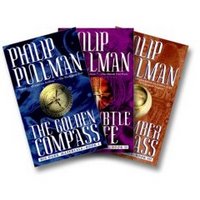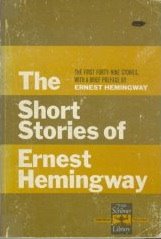 Wow. I mean whoa! I mean holy crap this book is good. When this book came out I was working at a bookstore, and I sat idly by as people stormed the shelves for this book. As I did, I hurumphed and thought to myself, "What's the big deal? Why all the hooplah? It's just a silly little story about for young adults, some toss aside read."
Wow. I mean whoa! I mean holy crap this book is good. When this book came out I was working at a bookstore, and I sat idly by as people stormed the shelves for this book. As I did, I hurumphed and thought to myself, "What's the big deal? Why all the hooplah? It's just a silly little story about for young adults, some toss aside read."Boy, was I wrong. The Harry Potter series just keeps getting better. Book 5 is absolutely amazing, and what J.K. Rowling has managed to do with these characters is just stunning to watch. Many nights I found myself reading into the wee hours, totally engrossed, entranced, off in the faraway land of Hogwarts dreading the Dark Lord Voldemort's imminent return. I'd end a chapter and come to, relieved that it was only a book, but believing in so much more.
The Harry Potter series is very multi-layered. And, contrary to what I believed a few years ago, it's not just a story for young adults. So much more is going on in these novels. The characters are so real and so alive and everything that's happening, while heightened to a fantastic level, is truthful and insightful to an astonishing degree. The level of detail in these books is jaw-dropping. I am a fan for life. Nothing has been such a joy to read since The Lord of the Rings, and while I have many favorite stories, those that I can come back to time and time again and learn something new about myself and the world with each visit are the most worthwhile. Harry Potter is one of those stories, and I look forward to revisiting it in the very near future.




